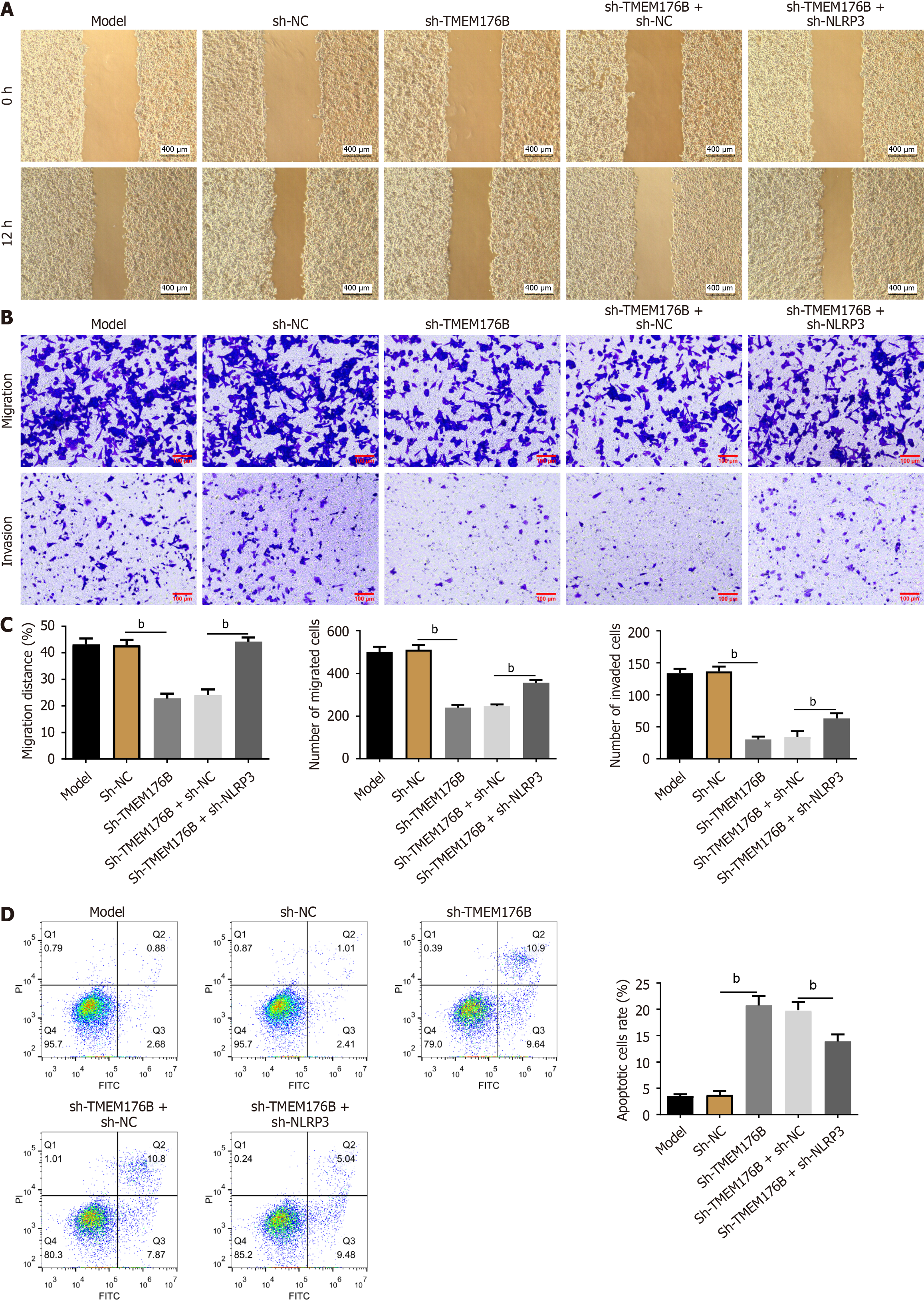Copyright
©The Author(s) 2025.
World J Gastrointest Oncol. Mar 15, 2025; 17(3): 97673
Published online Mar 15, 2025. doi: 10.4251/wjgo.v17.i3.97673
Published online Mar 15, 2025. doi: 10.4251/wjgo.v17.i3.97673
Figure 6 Short hairpin RNA targeting transmembrane protein 176B inhibits migration and invasion in CT26 cells co-cultured with activated natural killer cells while promoting cell apoptosis.
A-C: Wound healing and Transwell assays were used to assess migration distance, migration and invasion rates of CT26 cells co-cultured with interleukin-2 (IL-2)-exposed natural killer (NK) cells for 12 hours. With magnifications of 200 × (scale bar 100 μm) and 40 × (scale bar 400 μm). n = 3 in each group; D: Flow cytometry was used to analyze the apoptosis rate of CT26 cells co-cultured with IL-2-exposed NK cells. n = 3 in each group. aP < 0.05; bP < 0.01. sh-TMEM176B: Short hairpin RNA targeting transmembrane protein 176B; sh-NC: Short hairpin RNA interference-negative control; NK: Natural killer; IL-2: Interleukin-2.
- Citation: Qian W, Xu CY, Hong W, Li ZM, Xu DG. Transmembrane protein 176B promotes epithelial-mesenchymal transition in colorectal cancer through inflammasome inhibition. World J Gastrointest Oncol 2025; 17(3): 97673
- URL: https://www.wjgnet.com/1948-5204/full/v17/i3/97673.htm
- DOI: https://dx.doi.org/10.4251/wjgo.v17.i3.97673









